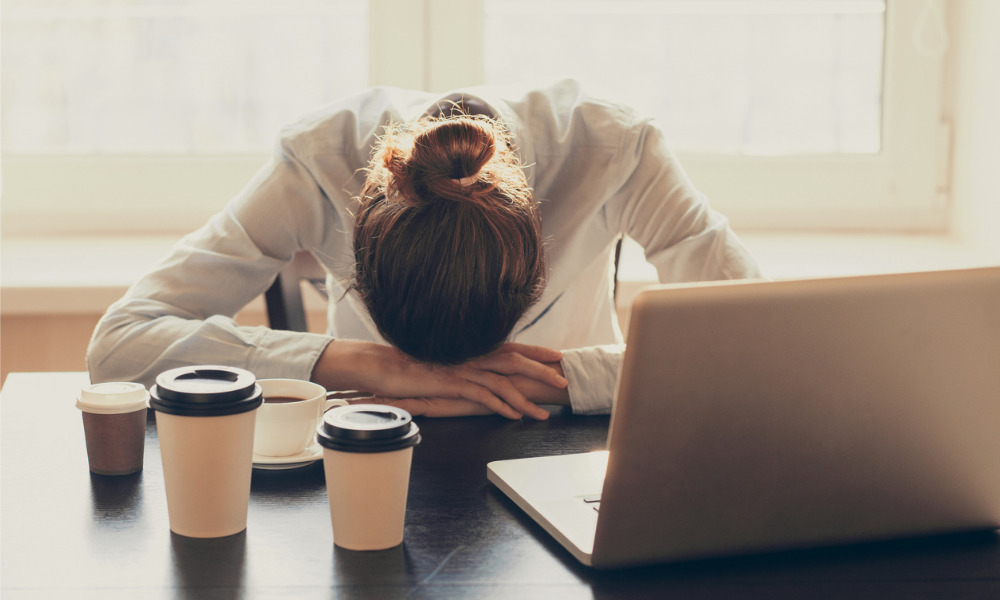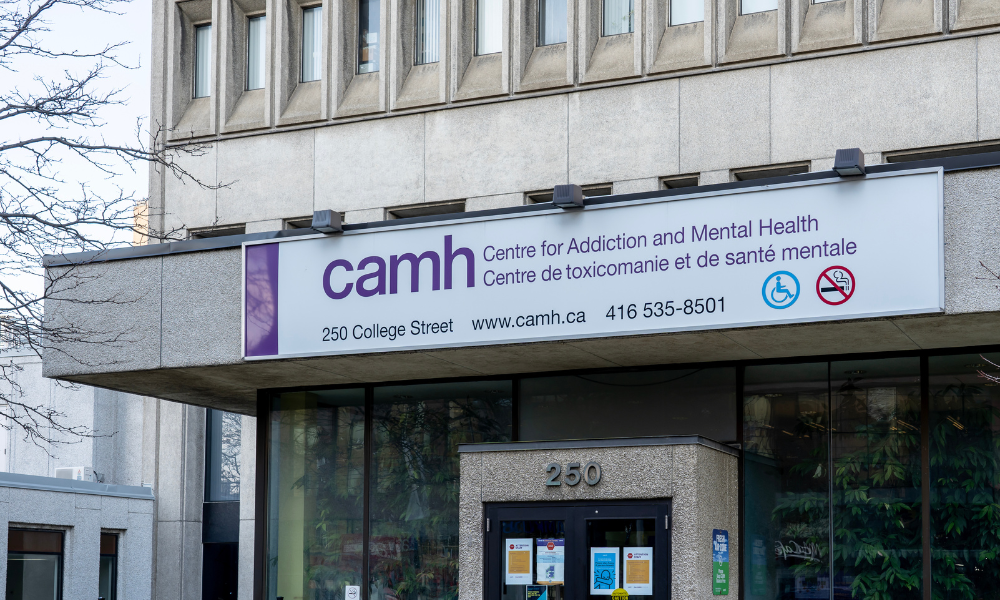Lack of sleep can have a devastating effect on worker health – and on an organization’s bottom line

It is common knowledge that humans need on average seven to eight hours of sleep a night to properly function. Researchers at Hult International Business School have found however that most professionals only get around six hours and 28 minutes of sleep a night – which maybe doesn’t seem so bad but ultimately builds up in the long-run.
While short term sleep loss may be caught up, chronic issues with sleep are a huge problem – not just for worker health but job performance as well. The National Institute for Working Life estimated that sleep deprivation among workers costs businesses around USD$350 billion worldwide annually.
And the consequences of sleep deprivation are dire, affecting both mental and physical health. The Canadian Centre for Occupational Health and Safety (CCOHS) lists some of the health effects, which include irritability, depression, headaches, and even loss of appetite and digestive problems.
In an article for Advanced Sleep Medicine Services, Inc., Vicki Culpin, a professor at Hult International Business School, highlights that sleepiness played a part in a number of global disasters, including the Challenger space shuttle accident in 1986 and the Chernobyl disaster, also in 1986.
In fact, Culpin also says that being tired has the same effect as being drunk! With staying awake for 17 hours equivalent to two glasses of wine, and staying awake for 24 hours equivalent to four glasses.
While it is easier to spot these signs in the physical workplace, it may be harder among teleworkers – a problem currently as many employees are working remotely due to the pandemic. As with mental health, it is important that employers maintain a direct line of contact with employees to ensure that they are in optimal mental and physical health – both of which have a direct impact on an organization’s finances.
Here are seven signs to look out for in workers to help spot sleep deprivation.
Cognitive decline
What exactly is cognitive decline? According to a blog post on Yoh:
“The starved brain may also decrease employees' creativity during brainstorming sessions and cause an overall decrease in their ability to think strategically and make good decisions,” says author John Breese CEO of Happysleepyhead.
And this is a problem in any industry, whether it be operating heavy machinery or coming up with new projects – our jobs rely on us being capable of making good decisions.
Difficulty in concentrating
Culpin says that critical leadership capabilities are among the hardest affected, these include being able to understand and communicate in a fast-paced environment, assessing risk, multi-tasking and decision-making. All activities which require a decent ability to concentrate.
More irritable and stressed
We’ve all been there – if you miss out on your sleep, you might find yourself more impatient and snappy with your colleagues. Sleep deprivation can also increase stress in the workplace, which in the long-term could transform into more serious conditions such as anxiety or depression.
Prone to miss work
As well as missing out on work, the National Sleep Foundation says that professionals spend around 4.5 hours doing work at home each week (workers who normally work on-site that is). This creates a vicious cycle, wherein workers are less productive at work, bring work home with them and then lose out on sleep to finish their work.
Poorer productivity
As stated before, sleep deprivation and poor sleep hygiene costs businesses worldwide billions of dollars. Hult’s research found that it costs organizations on average $2,280 a year per sleep-deprived employee in lost productivity – which is very much a non-negligible amount.
Emotional outbursts
In his article, Breese says that if the brain is rested enough, it simply can’t regulate emotions properly. This leads to people becoming more angry – and impulsive. In turn, this can create a negative atmosphere in the workplace which fosters unhealthy workplace relationships, unresolved tensions and disagreements.
Physical health issues
Breese explains that as well as psychological issues, lack of sleep can impact a person’s physical health too. For example, “elevated levels of cortisol — the primary stress marker — can trigger numerous fluctuations in the endocrine system and weaken the immune system, thereby making a person more prone to catching a cold or other infections,” he says.
In the midst of a global pandemic, a weakened immune system is certainly not something that any employer or worker wants.
So what can you do to help improve your or your employees’ sleep hygiene?
Build a nighttime routine to help your body “get ready” for bed (going to bed at the same time each time, eat a healthy diet, etc.); avoid stimulants such as caffeine in the evening, turn off devices like laptops or smartphones; and if you are bothered by noise/light, use ear plugs or blackout curtains.
Consult a doctor if the problem persists, it may be a sign of a more serious condition such as insomnia, narcolepsy or sleep apnea. It may also be the result of mental illness such as anxiety or depression.





